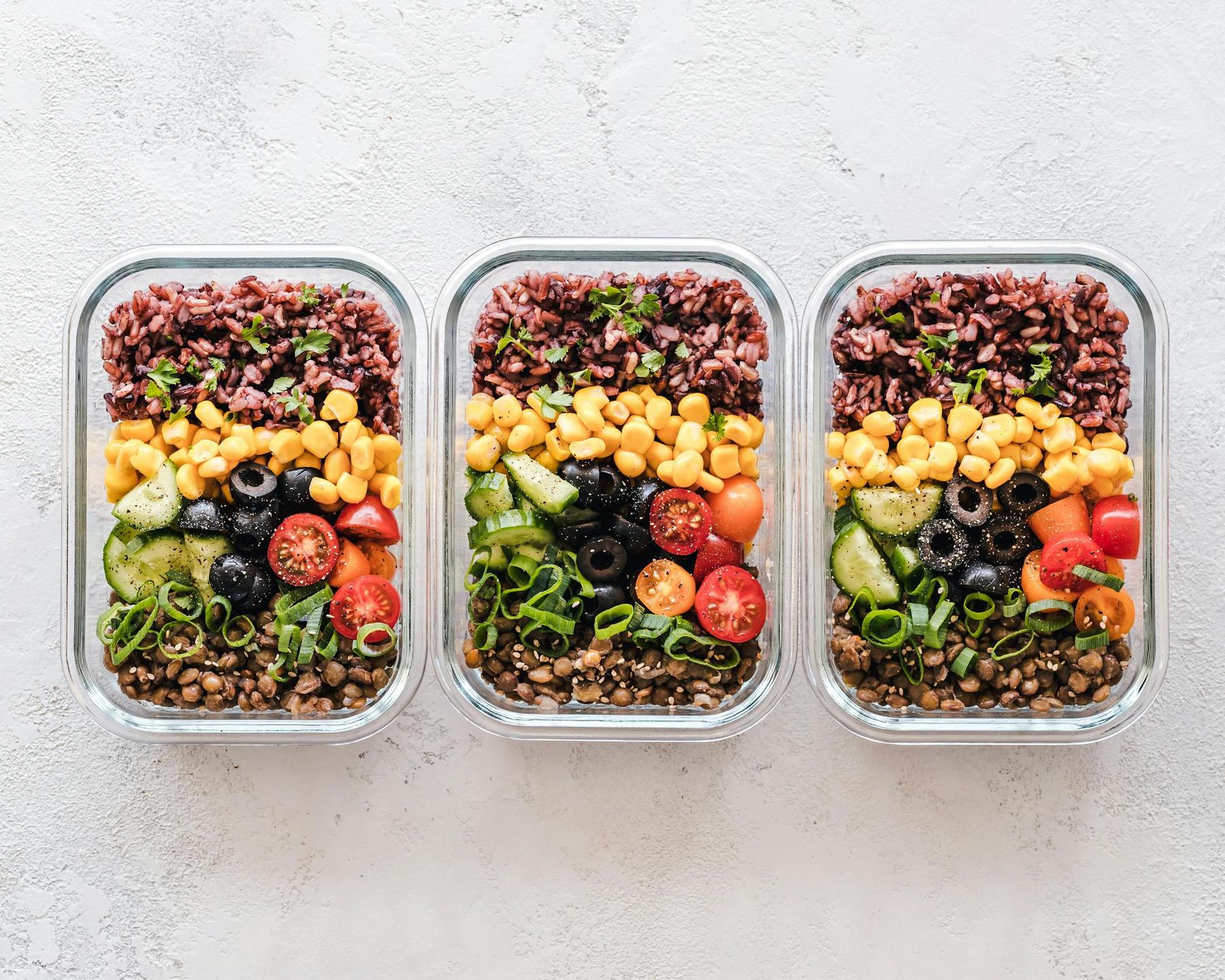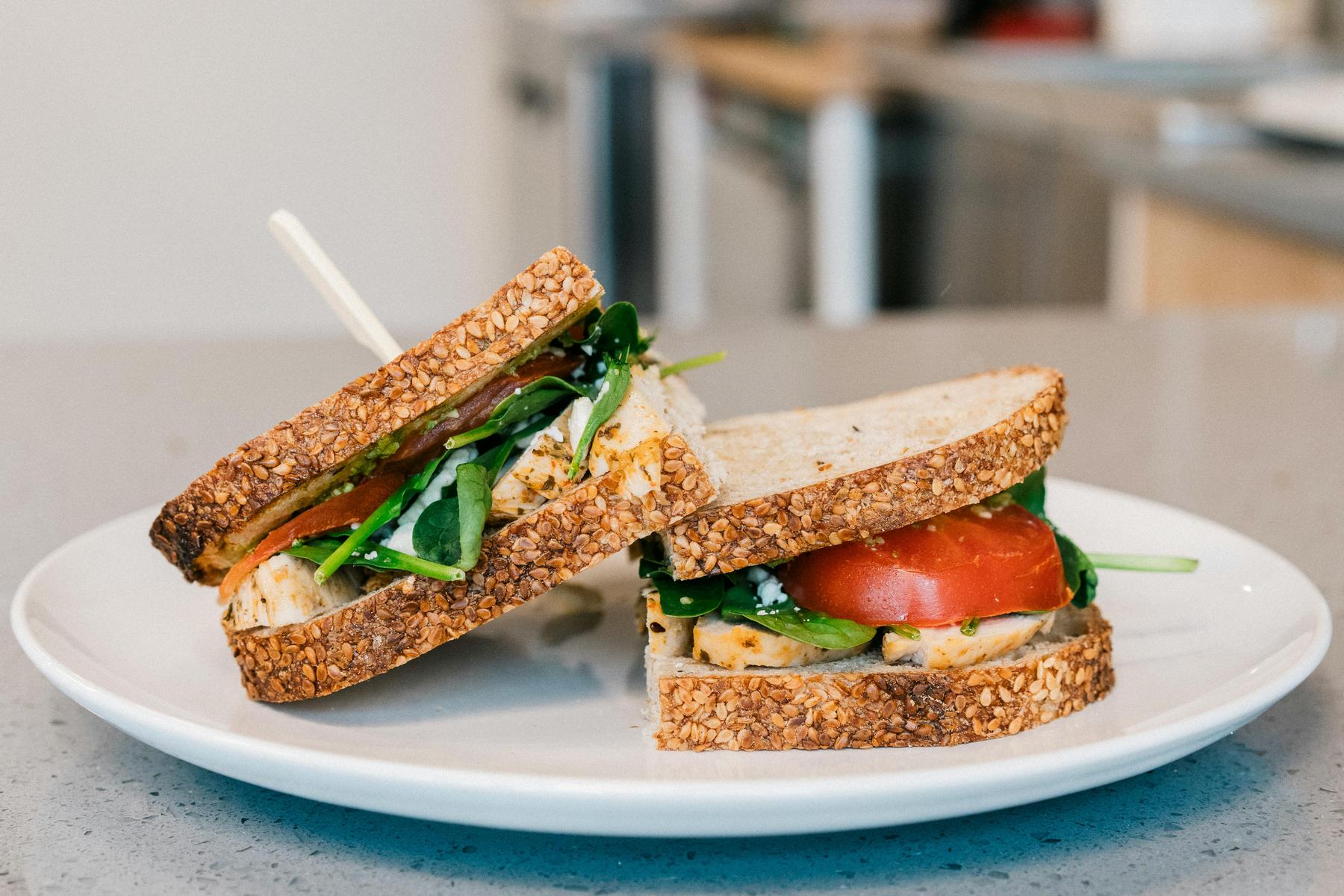The journey toward sustainable weight loss often feels like navigating a labyrinth of conflicting advice, short-term solutions, and inevitable rebound weight gain. For many Australians, the cycle of restrictive dieting followed by weight regain has become a frustrating reality. Yet, research consistently demonstrates that structured weekly meal planning serves as a cornerstone of successful, long-term weight management—when implemented correctly.
Rather than approaching weight loss as a temporary intervention, effective meal planning creates sustainable lifestyle changes that support gradual, consistent progress. The difference between temporary results and lasting change often lies in the science-based strategies that underpin your weekly meal structure.
Why Do Traditional Diets Fail for Long-Term Weight Loss?
Traditional diets frequently prioritise severe caloric restriction over nutritional quality, creating unsustainable eating patterns that the body naturally resists. Research shows that approximately 80% of individuals who lose weight through conventional dieting regain it within 12 months, often exceeding their starting weight.
The fundamental problem lies in the body’s adaptive response to restriction. When faced with dramatic calorie reduction, metabolic rate slows, hunger hormones increase, and psychological resistance builds. This biological defence mechanism developed throughout human evolution to protect against starvation—but works against modern weight loss efforts.
Effective weekly meal planning addresses these challenges by:
- Focusing on nutrient density rather than severe calorie restriction
- Creating manageable, progressive changes rather than dramatic overhauls
- Incorporating flexibility to accommodate real-life situations
- Building sustainable habits rather than temporary interventions
In contrast to rigid dieting, structured meal planning provides a framework for sustainable weight management while respecting the body’s nutritional needs.
How Can Weekly Meal Planning Support Sustainable Weight Management?
Structured meal planning serves as both a practical tool and a psychological framework for successful weight management. The evidence for its effectiveness is substantial:
Studies from the CSIRO Total Wellbeing Diet program demonstrate that participants following structured meal plans achieve an average weight loss of 6.5kg over 12 weeks—with significantly higher retention rates than unstructured approaches. More importantly, these results show better long-term maintenance when meal planning continues beyond the initial weight loss phase.
The mechanisms behind this success include:
Cognitive Offloading: By planning decisions in advance, meal planning reduces the cognitive burden of constant food choices, minimising decision fatigue and impulsive eating.
Behavioural Consistency: Regular planning creates structured eating patterns that become habitual, reducing the reliance on willpower over time.
Nutritional Optimisation: Planned meals ensure consistent nutrient intake, preventing the nutritional imbalances that often trigger cravings and overeating.
Caloric Awareness: Without requiring obsessive calorie counting, meal planning naturally creates awareness of appropriate portion sizes and energy balance.
The structured nature of meal planning provides guardrails for sustainable weight loss while accommodating individual preferences and lifestyle requirements.
What Are the Core Components of an Effective Weight Loss Meal Plan?
Successful weight loss meal plans balance several evidence-based components that work synergistically to create sustainable results:
1. Nutrient Density Over Calorie Restriction
The research shows clear advantages to prioritising nutrient-dense whole foods over simply cutting calories. Effective meal plans include:
- Adequate protein intake (20-25% of calories)to preserve muscle mass during weight loss and enhance satiety
- Fibre-rich vegetables and fruits (30-40g daily fibre)to stabilise blood sugar and promote fullness
- Healthy fats in moderate amountsto support hormone production and nutrient absorption
These components naturally create a calorie deficit while preventing the nutritional deficiencies that often sabotage weight loss efforts.
2. Structured Flexibility
Sustainable meal plans incorporate:
- Adjustable calorie frameworks(typically 1,200-1,500 daily), with options to scale based on activity levels
- Meal templatesrather than rigid menus, allowing ingredient substitutions based on preferences and availability
- Planned flexibilitywith options for social eating and occasional indulgences
This balanced approach prevents the all-or-nothing thinking that derails many weight loss attempts.
3. Practical Implementation Strategies
The most effective meal planning approaches include practical elements:
| Strategy | Implementation | Outcome Benefits |
|---|---|---|
| Portion Control | Using hand-sized protein portions (100-150g) | Reduces calorie intake by 20% compared to unrestricted eating |
| Meal Timing | 2-3 structured meals daily without excessive snacking | Associated with 12% greater weight loss maintenance |
| Food Sequencing | Starting meals with vegetables and proteins before carbohydrates | Lowers post-meal glucose spikes by approximately 30% |
| Batch Preparation | Preparing core components for multiple meals at once | Increases adherence rates by 40% compared to daily cooking |
These evidence-based strategies transform abstract nutritional goals into practical, daily habits that support sustainable weight management.
How Should You Structure Your Weekly Meal Plan for Optimal Results?
Effective weekly meal planning follows a progressive structure that adapts to your changing needs throughout the weight loss journey:
Initial Adaptation Phase (Days 1-3)
The first few days establish nutritional foundations while adjusting to new eating patterns:

- Breakfast:High-protein options (20-30g protein) such as eggs with vegetables or Greek yoghurt with berries
- Lunch:Vegetable-based soups or salads with lean protein (350-450 calories)
- Dinner:Grilled lean proteins paired with non-starchy vegetables and small portions of complex carbohydrates
This structure provides clear parameters while allowing sufficient caloric intake to prevent excessive hunger during adaptation.
Maintenance Phase (Days 4-7)
As your body adjusts, the meal plan expands to include:
- More complex carbohydrates like quinoa, sweet potatoes, and whole grains
- Planned “flex meals” using leftovers or healthier convenience options
- Strategic snack options for higher activity days
This progression builds sustainable habits while preventing the dietary monotony that often leads to abandoning meal plans.
Weekly Reset and Evaluation
The end of each weekly cycle should include:
- Review of what worked and what needs adjustment
- Preparation of core ingredients for the coming week
- Subtle adjustments based on progress and feedback
This iterative approach prevents the common pattern of abandoning meal plans when they don’t immediately yield perfect results.
When Should You Consider Medical Support for Your Weight Loss Journey?
While meal planning forms a foundation for sustainable weight loss, certain situations benefit from professional medical supervision:
- BMI exceeding 27, particularly with weight-related health conditions
- History of multiple unsuccessful weight loss attempts despite structured approaches
- Presence of metabolic complications like insulin resistance or hormonal imbalances
- Psychological factors that consistently disrupt healthy eating patterns
Modern telehealth services enhance the sustainability of medically-supervised weight loss through:
- Regular body composition monitoring using bioimpedance tracking
- Personalised adjustments based on individual metabolic responses
- Integration of meal planning with appropriate medical interventions
- Gradual transitions between different phases of weight management
Research demonstrates that combined approaches—integrating structured meal planning with medical supervision—result in 15-25% greater weight loss at 12-month follow-ups compared to self-directed efforts alone.
The Australian healthcare landscape now provides access to evidence-based telehealth options that bridge the gap between generic diet plans and comprehensive medical weight management.
How Can You Maintain Weight Loss Success Through Adaptive Meal Planning?
Long-term success depends on transitioning from “dieting” to sustainable lifestyle patterns. Evidence from successful weight loss maintainers highlights several key strategies:
Progressive Nutritional Adjustment
Rather than returning to previous eating patterns after reaching weight goals, successful maintainers:
- Gradually increase calories by 100-200 per day while monitoring response
- Maintain protein intake at 20-25% of total calories
- Continue structured meal planning with increased flexibility
- Incorporate seasonal foods and varied preparation methods to prevent dietary fatigue
Metabolic Monitoring and Adjustment
Weight maintenance benefits from ongoing awareness of metabolic responses:
- Regular tracking of basic metrics like weight, energy levels, and hunger patterns
- Adjusting meal composition based on individual responses
- Incorporating more nutrient-dense foods as calorie needs increase with activity
Integration with Lifestyle Factors
Sustainable weight management integrates meal planning with complementary factors:
- Coordinating meal timing with physical activity patterns
- Developing stress management techniques that reduce emotional eating
- Building social support systems that reinforce healthy eating patterns
These adaptive approaches transform meal planning from a temporary weight loss strategy into a sustainable framework for long-term health.
Sustainable Weight Management Through Evidence-Based Meal Planning
The science is clear: successful weight management depends not on short-term dietary extremes but on creating sustainable nutritional patterns through structured, flexible meal planning. By prioritising nutrient density, incorporating progressive adaptation, and balancing structure with flexibility, Australians can escape the cycle of restrictive dieting and rebound weight gain.
Effective meal planning provides a roadmap for navigating the complex terrain of weight management, creating a balance between nutritional science and practical implementation. Whether pursuing modest weight reduction or significant transformation, the principles remain consistent: sustainable progress through evidence-based structure.
For those with BMI exceeding 27 or complex weight management challenges, integrating structured meal planning with appropriate medical supervision offers the highest probability of sustained success.
How many calories should my weekly meal plan include for healthy weight loss?
Evidence-based weight loss meal plans typically provide 1,200-1,500 calories daily for women and 1,500-1,800 for men, creating a moderate deficit of 500-750 calories below maintenance needs. This range supports a sustainable loss of 0.5-1kg weekly while providing sufficient nutrients to maintain metabolic function. However, individual requirements vary based on activity level, age, and metabolic factors, which is why personalised adjustments improve long-term outcomes. Sustainable approaches focus on quality nutrition within these ranges rather than extreme restriction.
Can meal planning help with emotional eating patterns?
Yes, structured meal planning directly addresses emotional eating through several evidence-based mechanisms. By establishing regular eating patterns, meal plans stabilise blood sugar fluctuations that often trigger cravings and mood swings. The predictability of planned meals reduces food-related decision fatigue, which can deplete the psychological resources needed to manage emotional responses. Additionally, comprehensive meal planning incorporates strategies for handling high-risk emotional situations, such as preparing portion-controlled comfort foods that satisfy emotional needs without derailing progress.
Is it better to prepare meals in advance or cook daily for weight loss?
Research indicates that a hybrid approach yields the highest adherence rates for sustainable weight management. Preparing core components in advance (such as proteins, roasted vegetables, and cooked grains) while assembling final meals fresh offers the convenience of batch cooking with the satisfaction of freshly prepared elements. Studies show 40% higher plan adherence when using this approach compared to daily cooking from scratch.
How do I adjust my meal plan as I progress in my weight loss journey?
Successful long-term weight management requires progressive meal plan adjustments based on physiological and psychological responses. As weight decreases, basal metabolic rate typically reduces, necessitating either increased physical activity or subtle adjustments to caloric intake. Effective strategies include maintaining protein intake while gradually reducing energy-dense carbohydrates and fats, increasing meal volume with additional non-starchy vegetables, and incorporating intermittent metabolic ‘reset’ days at maintenance calories to counteract adaptive metabolic slowdown.
What role does protein play in a sustainable weight loss meal plan?
Protein is a cornerstone of effective weight management meal plans. Research supports an intake of 1.6-2.2g per kg of ideal body weight daily to preserve lean muscle mass during caloric deficit. Protein digestion also has a higher thermic effect compared to carbohydrates, and it significantly increases satiety hormones while reducing hunger signals. This helps naturally decrease overall caloric consumption without relying solely on willpower-dependent restrictions.




